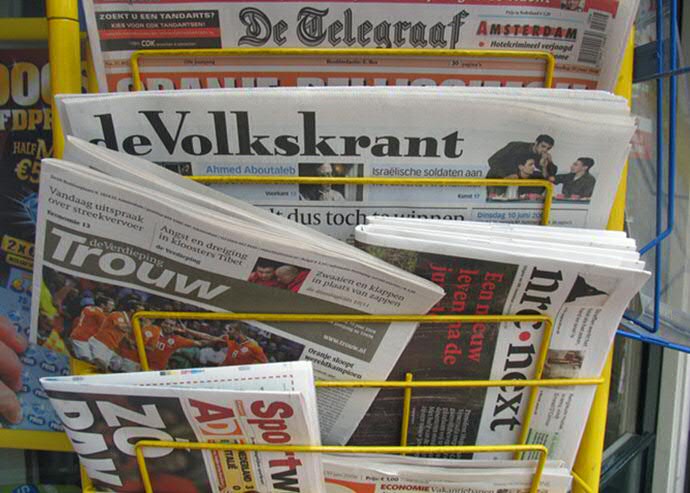Editors-in-chief struggle with digital news culture

The transition to the new digital news culture is proving difficult for traditional media. Conservative journalists are not the only reason; the main cause is a lack of strong leadership. Editors-in-chief focus on organizational change but lack a clear vision of the future for online journalism. This is the conclusion of research on media convergence by journalist Klaske Tameling. She will be awarded a PhD by the University of Groningen on 18 June.
Over the past few years, news culture has shifted from mass media, where every subscriber or viewer is presented with the same information, to online media, whereby the news consumer can choose what to view in an interactive environment. Both the written and audiovisual press have recognized the need to provide much more news online, and obviously they would prefer the same journalists to do so, in order to prevent duplication. Editors are thinking up one scheme after another to get news online faster, and preferably across several channels at once, or in fact to provide more in-depth news using the unlimited room available online.
Missing online opportunities
More often than not, the ambitious goals of these plans are not achieved, the project is turned around halfway through, or takes a completely different tack altogether, says Tameling. She conducted ethnographic research in 2011 and 2012 in the form of extensive interviews with the editorial departments of the Volkskrant, NOS Nieuws, Het Financieele Dagblad and BNR. She was also allowed access to policy documents on cross-media projects. ‘The transition is somewhat easier for audiovisual news stations such as BNR and the NOS, because they are used to handling many more deadlines in a day than newspapers are, but all the traditional media are failing to make the most of the opportunities. For example, the online editorial boards are relatively small and have little influence, while the online platforms are much too focused on text rather than images and they make too little use of online statistics.’
Journalistic culture change required
The research revealed that the cross-media editorial boards have created a divide between mass media and online media journalists. According to Tameling, the problem is that the editors-in-chief are themselves part of the traditional mass media culture and they fail to facilitate cooperation between the various editors. ‘The cross-media plans were too ambitious and too vague. The editors-in-chief really do not know enough about digital news culture, but at the same time they are not open enough to good ideas from further down the chain. The editors-in-chief showed little real involvement with online media, the internet editors were left with an underdog complex and the result was anything but a communal cross-media culture. They need to focus less on organizational change and more on fundamentally changing journalistic culture. What is the role of the journalist in online media? The editorial boards gave little attention to this question. This research reveals that the traditional media need to find editors-in-chief who understand the digital news culture and who can translate their vision into concrete change on the newsroom floor.’
Curriculum vitae
Klaske Tameling (Groningen, 1984) completed an MA in Journalism at the University of Groningen and worked as an editor for both radio and television. Between 2010 and 2014 she conducted PhD research at the University of Groningen’s Centre for Media & Journalism Studies. The title of her PhD thesis is En wat doen we online? Crossmediale dilemma's op de Nederlandse nieuwsredactie (What's happening online? Cross-media dilemmas in Dutch newsrooms). Her PhD supervisors are Prof. Marcel Broersma and Prof. Marc Chavannes. The book will be published in a commercial edition by Boom-Lemma. A book presentation and debate will be held in Amsterdam on 25 June.
More information
For questions about this research and review copies, please contact Klaske Tameling, www.klasketameling.nl
More news
-
19 January 2026
Digitization can leave disadvantaged citizens in the lurch
-
13 January 2026
Doing good in complex situations
